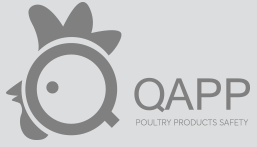
The QAPP project will be conducted over a three-year period and consists of 4 Work Packages.
WP1 – Enumeration and detection of Microbiota (Months: 1 – 30)
Study and characterization of “shelf life” and safety level of the products under evaluation.
WP2 – Products fingerprint (Months: 3 – 36)
Metabolomics fingerprinting of products with 'conventional' and modern non-invasive analytical approaches.
WP3 – Quality and safety predictive models (Months: 4 – 36)
Development of a conversion algorithm, which will convert online, measurements of instrumental analysis to levels of quality and safety of the products under evaluation. Development of predictive models (tracking models) for predictions of the remaining “shelf life” of the products under evaluation - prediction and development of stochastic models to identify the (source) stage of a current problem.
WP4 – Development of novel cloud based repository (cloud-enabled model and data storage system) (Months: 1 – 36)
Development of an Integrated Information and Communications Technology (ICT) Repository Platform, which will record the information on spoilage and safety, by combining the data models developed, with the current state-of-the-art information and communication technologies.
Dissemination Activities
QAPP has a potentially large number of interested users and therefore it is important to have a good dissemination of the research results, the software applications and the ICT services that will be developed in the course of the project, both domestically and abroad. The following activities will take place:
- Participation in international conferences on the convergence of rural businesses with information and communication technology and sensor technologies,
- Publication of articles in journals,
- Webinars with researchers, control services and the general public,
- Newsletters
- Training seminars for the staff of the involved SMEs, the control services (e.g. EFET), the Greek Food Industry and the consumers, on the possibility of harmonious coexistence of science, new technologies and the safety and quality of perishable food products.
- Media like brochures and presence on social media (e.g., twitter, Facebook) will be used where necessary to disseminate the goals and results of the project to the public.
The QAPP repository will be a “meeting point” between stakeholders from the Food Industry, control authorities, sensor manufacturers and the scientific community to expand optical sensor technologies in primary and manufacturing production.